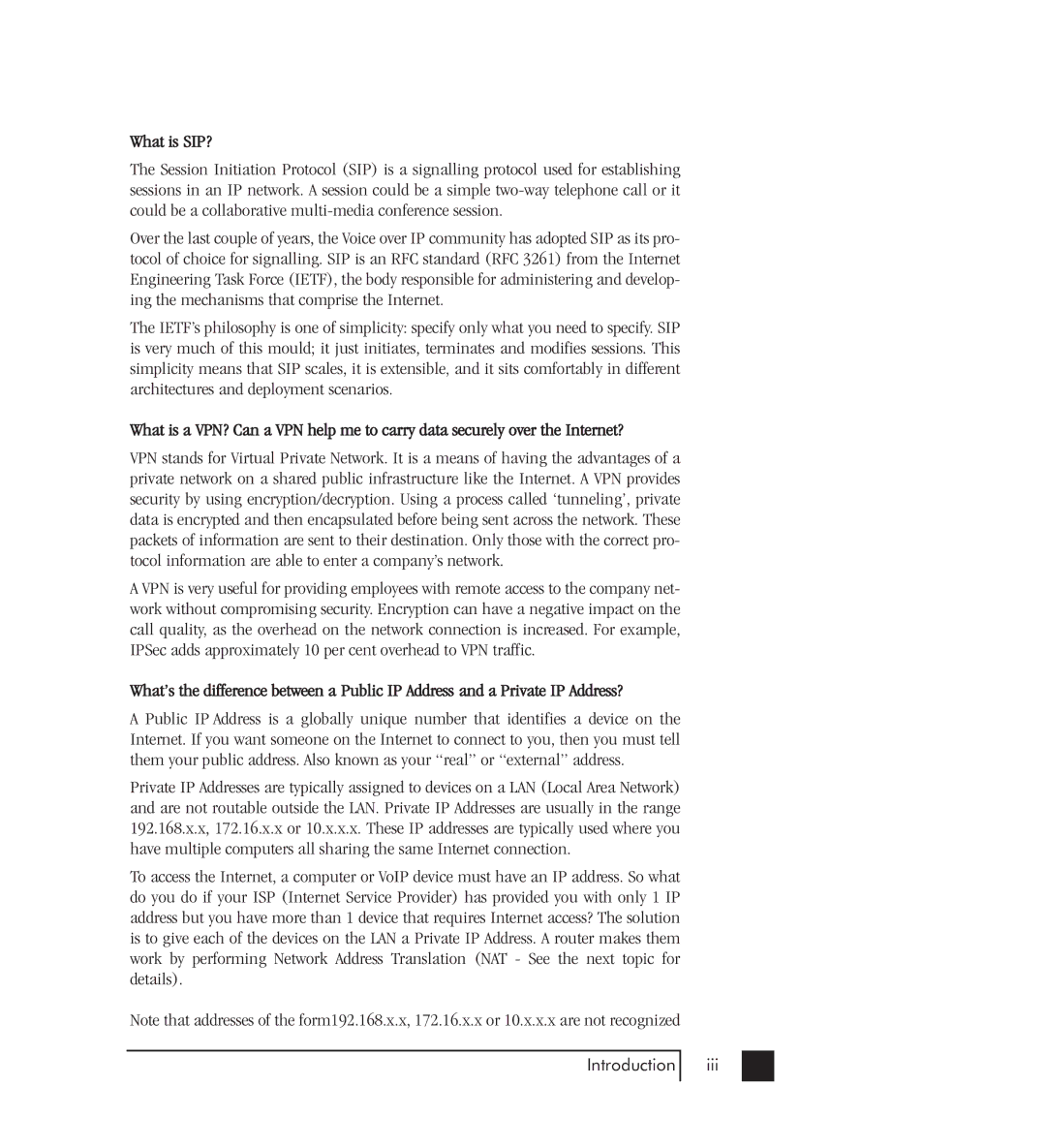
What is SIP?
The Session Initiation Protocol (SIP) is a signalling protocol used for establishing sessions in an IP network. A session could be a simple
Over the last couple of years, the Voice over IP community has adopted SIP as its pro- tocol of choice for signalling. SIP is an RFC standard (RFC 3261) from the Internet Engineering Task Force (IETF), the body responsible for administering and develop- ing the mechanisms that comprise the Internet.
The IETF’s philosophy is one of simplicity: specify only what you need to specify. SIP is very much of this mould; it just initiates, terminates and modifies sessions. This simplicity means that SIP scales, it is extensible, and it sits comfortably in different architectures and deployment scenarios.
What is a VPN? Can a VPN help me to carry data securely over the Internet?
VPN stands for Virtual Private Network. It is a means of having the advantages of a private network on a shared public infrastructure like the Internet. A VPN provides security by using encryption/decryption. Using a process called ‘tunneling’, private data is encrypted and then encapsulated before being sent across the network. These packets of information are sent to their destination. Only those with the correct pro- tocol information are able to enter a company’s network.
A VPN is very useful for providing employees with remote access to the company net- work without compromising security. Encryption can have a negative impact on the call quality, as the overhead on the network connection is increased. For example, IPSec adds approximately 10 per cent overhead to VPN traffic.
What’s the difference between a Public IP Address and a Private IP Address?
A Public IP Address is a globally unique number that identifies a device on the Internet. If you want someone on the Internet to connect to you, then you must tell them your public address. Also known as your “real” or “external” address.
Private IP Addresses are typically assigned to devices on a LAN (Local Area Network) and are not routable outside the LAN. Private IP Addresses are usually in the range 192.168.x.x, 172.16.x.x or 10.x.x.x. These IP addresses are typically used where you have multiple computers all sharing the same Internet connection.
To access the Internet, a computer or VoIP device must have an IP address. So what do you do if your ISP (Internet Service Provider) has provided you with only 1 IP address but you have more than 1 device that requires Internet access? The solution is to give each of the devices on the LAN a Private IP Address. A router makes them work by performing Network Address Translation (NAT - See the next topic for details).
Note that addresses of the form192.168.x.x, 172.16.x.x or 10.x.x.x are not recognized
Introduction | iii |
